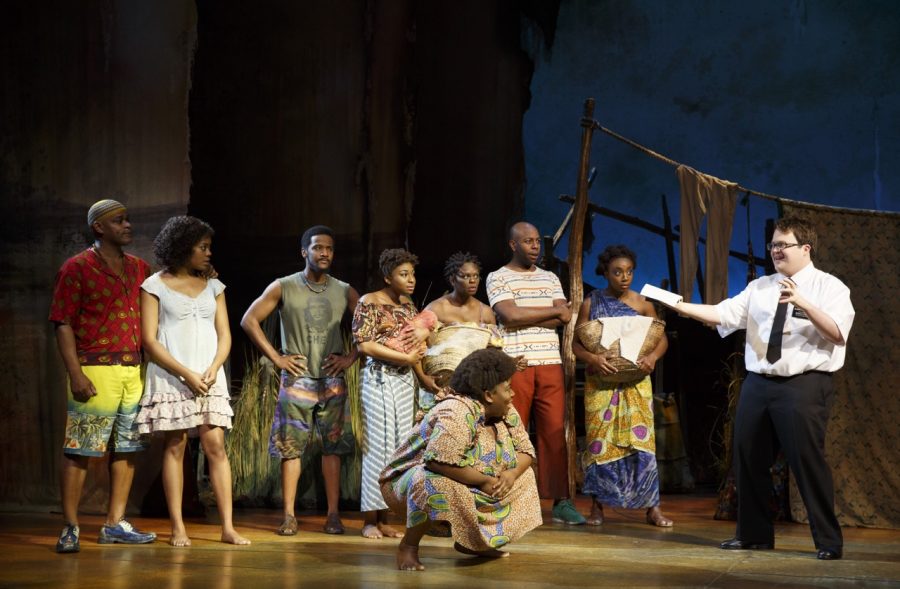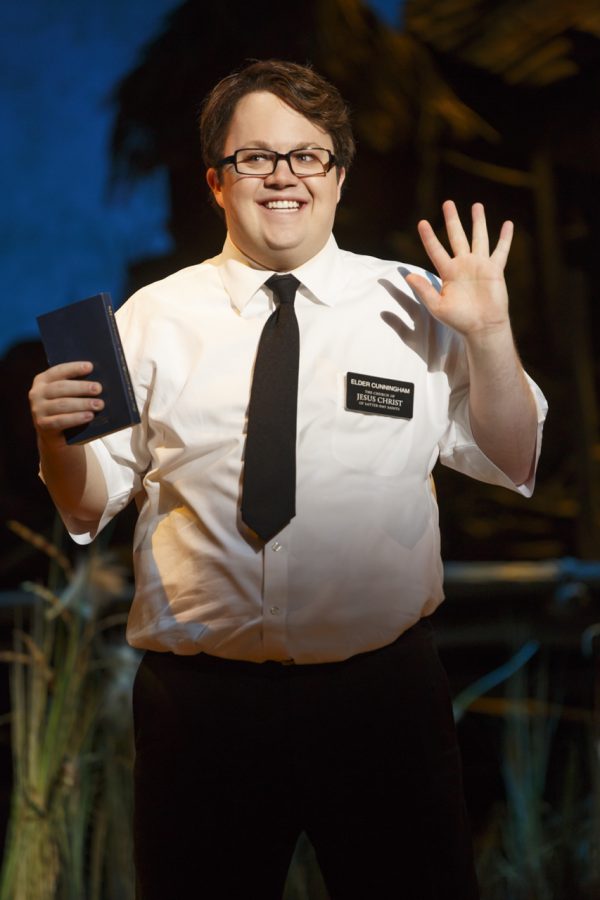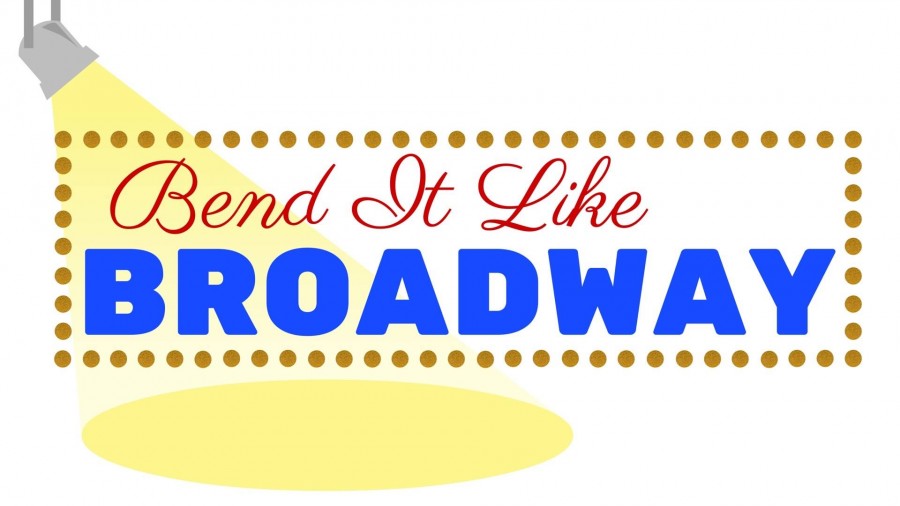In general, musicals are larger than life, ridiculous and inherently unrealistic. In the real world, people don’t break into song and dance. The magic of the musical pulls people in. “Book of Mormon” does this in unparalleled ways.
“Book of Mormon” follows two missionaries, Elder Price (Gabe Gibbs) and Elder Cunningham (Cody Jamison Strand), as they embark on their first mission in Uganda. Price is less than thrilled with his placement and bails after a few short days. Cunningham is able to grab the attention of the originally unreceptive African people. However, he has a problem with lying, and lies about different aspects of his religion. These lies ultimately lead the people to conversion.
Later on, when church leaders come to congratulate the Elders on their progress, they are disgraced with the lies these people have taken as truth. They tell the missionaries to pack their bags, but they decide to stay. In the end, they are truly unified with the people of Uganda, who accept the lies they were told as metaphors to learn from.
Throughout the show, there are numerous innuendos and politically incorrect jokes that got the audience laughing. Going into this show, remembering the general absurdity of musicals is important. Hopefully, no right-minded person would repeat the vast majority of things said in the show.
Some of these jokes were clever. There was an entire song, “Baptize Me,” that used baptism as a sexual innuendo, which was surprisingly well done, although quite explicit.
While the song itself was clever, Strand and Candace Quarrels, who played Nabulungi, each had beautiful and strong voices. Gibbs showcased his musical gifts in his solo songs as well. None of the three leads lost their character in their music, maintaining the integrity of the performance.
Elder Price was the epitome of a star student. He held high expectations for himself and those around him. His many mood swings- from excitement despair to fear and hope, were shown in strong facials and tones.
Elder Cunningham embodied a traditional underdog. The character messed up countless times, but kept his head high. Strand created a lovable, over the top character with a strong stage presence and deliberate body language.
Body language was a key factor as Strand danced his way through “Man Up.” While this showcased the performance’s quality, it was also an incredibly exciting scene (Brian MacDevitt). Neon lights made the audience feel like they were at a concert while Elder Cunningham had a rock-star moment. Disco balls glittered reflective lights across the audience.
However, at times the neon lights against the white costumes became very strong and somewhat painful to look at. This was brief and did not deter from the quality of the other elements of the show.
Vibrant lights shone through the set during the whole show. The proscenium was formed by a modern Mormon temple. Rays of light glistened in the gaps, adding to the mood of each scene, whether it took place Salt Lake City or Hell.
The set (Scott Park) overall was impressive, and set changes were fluid and non-disruptive. This contributed to how easy it was to follow the show.
Costumes (Ann Roth) were reflective of each character, and the amount of work put towards properly representing each demographic was obvious. While costume changes were scarce, a large group of Mormon missionaries were able to add pink sequined vests to their ensemble almost instantaneously. Likely the most stand out costume, it added to the creativity and humor of the well choreographed tap dance during “Turn it Off.”
The tap dance was in sync and each dancer had a strong sense of musicality. Their strong performance translated over to all of the other dance numbers, but “Turn it Off” was easily most impressive.
Overall, “Book of Mormon” will keep you smiling, perhaps make your jaw drop, and ruthlessly entertain you in a well-timed and well-executed show. Just be sure to go in with an open mind.
The show runs through Oct. 30 at the Marcus Center for Performing Arts.




